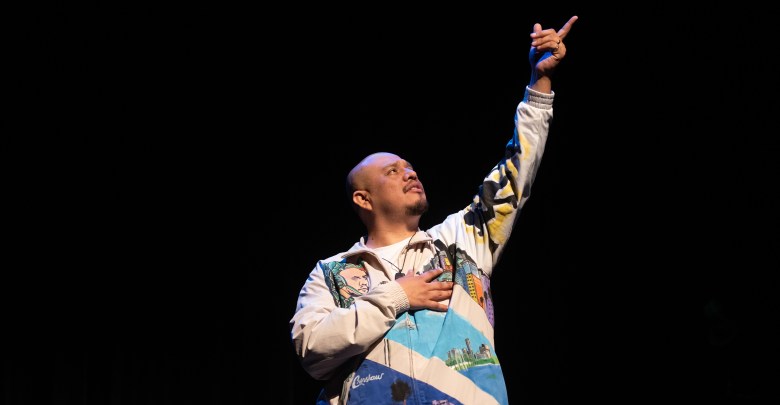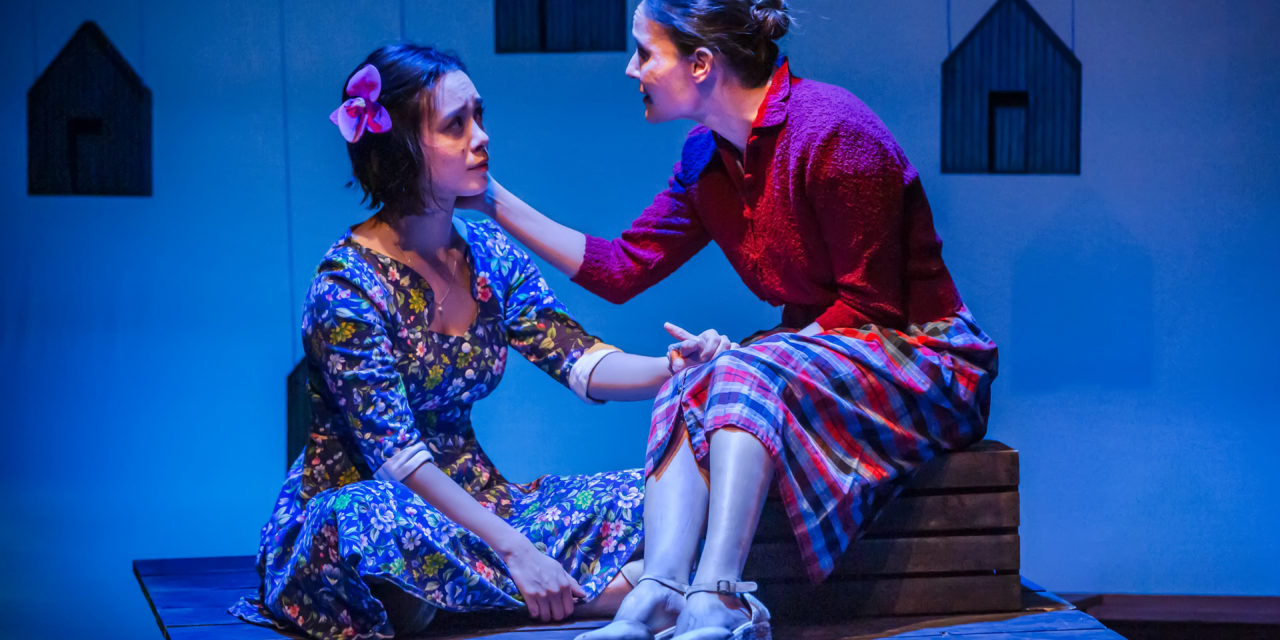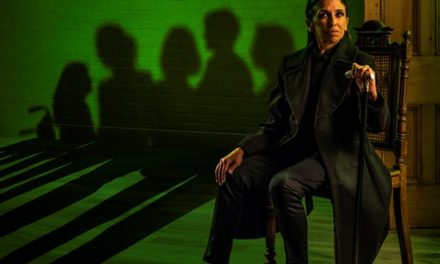A lot has happened in the last year—locally in Houston, across the state of Texas, in the United States, and beyond. As we enter the third year of the Trump Presidency, the urgency around Latinx representation in theatre has become even more necessary. In just two years, we have seen the negative repercussions of blatantly xenophobic and nationalist rhetoric that villanizes the U.S. Latinx and Latin American populations and has real-world implications on the lived experiences of this very population. We’ve seen travel bans against certain religious and ethnic groups. We’ve seen Central American families ripped apart at the U.S./Mexico border. We’ve seen children quite literally put in cages by United States forces. While these examples may appear out of the pages of a dystopian novel, they are major real-world issues facing people of color in the United States today, adding to what historian Rudolfo Acuña has called “the legacy of hate” upon which this country was founded and continues to dictate how brown bodies are marginalized in this country.
So, what can theatre do to address this, if at all? While I’m sure that if you asked 100 people, you would receive 100 different answers, I believe that theatre has the potential to be the beacon of change this country needs right now. In Houston, Stages Repertory Theatre is creating space to do this work at its second annual Sin Muros: A Latinx Theatre Festival from January 31 to February 3, 2019. This builds on the 2018 edition of Sin Muros which saw the world premiere of Josh Inocéncio’s Purple Eyes, staged readings of new plays by Mando Alvarado, Bernardo Cubria, and Tanya Saracho, alongside free events and workshops for the Houston community.

Writer Jasminne Mendez. Photo courtesy of Jasminne Mendez.
Full disclosure: I am the producer of Sin Muros. My work here is not meant to shamelessly promote the festival or be a cheerleader for the work we are doing. My goal is to create a record of this work so that it may be useful to other theatremakers and/or scholars. As such, this is an exercise in transparency.
Sin Muros 2019 will feature full productions of The River Bride by Marisela Treviño Orta, WET: A DACAmented Journey by Alex Alpharaoh, staged readings of City Without Altar by Jasminne Mendez, Then They Forgot About the Rest by Georgina Escobar, and The Corrido of the San Patricios by Beto O’Byrne, in addition to poetry performances, workshops, and other community events. The festival represents Stages’ genuine investment in supporting Houston’s Latinx community. Sin Muros is not supported by any special grant or donation; rather, the festival is a normal part of the organization’s operating budget, demonstrating a true commitment to this work.
We began working on Sin Muros 2019 before 2018 even began. After introducing Artistic Director Kenn McLaughlin to the work of playwright Marisela Treviño Orta, he quickly decided that The River Bride would be the festival’s anchor play. Selecting The River Bride, a grim Brazilian fairy tale, enabled us to expand our work to be more inclusive of the spectrum of Latinx identities. With this in mind, we set up a partnership with the Brazilian Arts Foundation, which has been doing meaningful work with Houston’s Brazilian communities for decades.

Alex Alpharaoh in WET: A DACAmented Journey. Courtesy of Ray Shaw.
From there, it was a question of building out the rest of the programming. After the success of Josh Inocéncio’s Purple Eyes in 2018, the committee agreed that we wanted to continue this work by making space for another solo show in 2019. Several ideas were bounced around, but given the aforementioned political moment, we enthusiastically decided that we wanted to bring Alex Alpharaoh’s WET: A DACAmented Journey to Houston audiences. I first saw Alpharaoh’s show at the Encuentro de las Americas at the Los Angeles Theatre Center in 2017 and was blown away by nearly every aspect of the production. Alpharaoh has toured the show across Texas and the US, receiving rave reviews at each stop. He has graced the cover of American Theatre Magazine and has been the most visible theatrical representation for DACA and undocumented communities in the last year. WET dramatizes Alpharaoh’s own experiences as an undocumented person in the aftermath of the 2016 presidential election. Born in Guatemala, Alpharaoh was brought to the US as an infant; the United States is his home. Yet, as WET shows, xenophobic laws and policies have wreaked havoc on the nation’s undocumented and Latinx communities. To say that WET is one of the most powerful pieces of theatre that I’ve ever seen would be an understatement. That I was able to bring this piece to Sin Muros with the full support of McLaughlin, who won’t see the show until the festival, speaks to the commitment Stages has to be a space to have conversations about immigration, undocumentedness, and citizenship with Houston audiences. I truly believe WET is the type of theatre that can be a beacon of change for anyone that enters the theatre with an open mind.

Alex Alpharaoh. Photo by Elisa Noemí.
In addition to The River Bride and WET, the three play readings—City Without Altar, Then They Forgot About the Rest, and The Corrido of the San Patricios—all speak to different aspects of Latinidad and issues facing the Latinx population today, even if some of these works take place centuries ago. A staple on the Houston literary scene, Jasminne Mendez’s City Without Altar infuses poetry to tell the story of a Dominican woman trying to unearth the violent past between the Dominican Republic and Haiti. Georgina Escobar’s Then They Forgot About the Rest uses the setting of a dystopian west to linger on notions of memory and the Latinx borderlands. Beto O’Byrne’s The Corrido of the San Patricios sheds light on an often-overlooked part of history that saw collaborations within the Irish and Mexican communities. While these three plays employ distinct aesthetics, styles, and themes, collectively they expand the idea of what a Latinx play can be. They amplify Latinx identities that are not always given mainstream exposure.
Ultimately, producing this festival has been an eye-opening experience for me as an advocate for Latinx theatre, both nationally, but specifically in Houston. While Latinx representation has grown in recent years with more companies producing work, the continued Spanish-language work of Gente de Teatro, and the new Latinx theatre company TEATRX, there are still noticeable gaps. As I’ve written about elsewhere, Houston’s theatre community regularly features a lack of Latinx stories on its stages despite doing work in a definitively Latinx city. Latinx stories aren’t just Latinx stories. They are Houston stories. Sin Muros isn’t just a Latinx theatre festival. It’s a theatre festival for all.
This post was written by the author in their personal capacity.The opinions expressed in this article are the author’s own and do not reflect the view of The Theatre Times, their staff or collaborators.
This post was written by Trevor Boffone.
The views expressed here belong to the author and do not necessarily reflect our views and opinions.


















